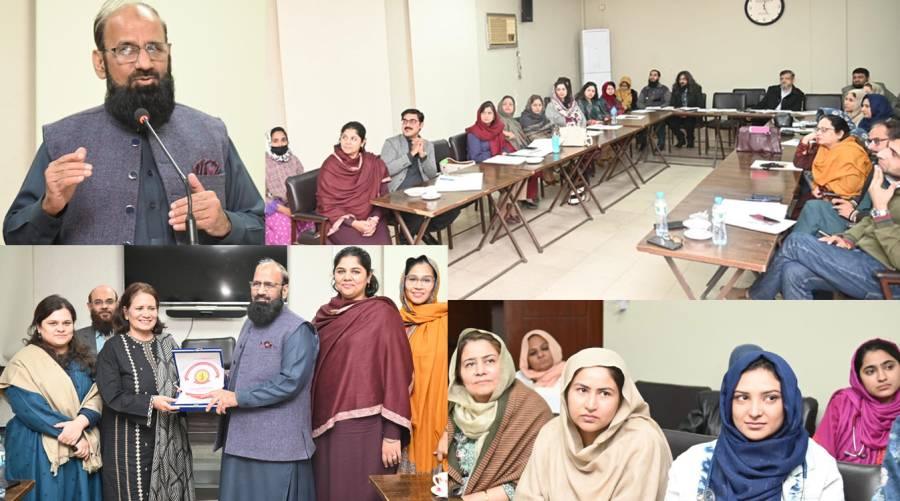LAHORE: The Department of Community Medicine and Office of Research, Innovation and Commercialization (ORIC) of Fatima Jinnah Medical University (FJMU) Successfully organized a pre-conference workshop on “Emotional Intelligence and Emotional Regulation.” The event was part of the Annual Scientific Conference 2024 and was held at the Department of Medical Education, FJMU.
Renowned facilitators included Professor Emeritus Rukhsana Kausar, Vice-Chancellor, Rashid Latif Khan University (RLKU)and Madam Wajiha Abrar, RLKU student advisor. The workshop was attended by Professor Khalid Masud Gondal, Vice-Chancellor of FJMU and winner of Tamgha-e-Imtiaz Award and Presidential Pride of Performance Award. Esteemed faculty members from various departments of clinical and basic health sciences also attended the event.
The workshop focused on equipping healthcare professionals with practical strategies to understand and regulate emotions, manage stress effectively, and build resilience in high-pressure medical environments. Topics included the critical role of Emotional Intelligence (EI) in improving mental well-being, fostering adaptability, and combating burnout in healthcare settings.
Interactive activities, such as identifying emotional triggers and expressive writing, allowed participants to self-reflect and explore practical techniques for managing stress and building emotional resilience. Discussions emphasized how perceiving and regulating emotions can improve both personal and professional outcomes for healthcare workers.
The event received overwhelmingly positive feedback from attendees, including senior faculty, postgraduate residents, psychologists, nursing professors, and physicians-in-training. Vice Chancellor Professor Khalid Masud Gondal praised the facilitators for their valuable insights and highlighted the critical need for training in emotional intelligence and regulation in the medical profession.
This workshop underlined FJMU’s commitment to fostering innovation and wellbeing among healthcare professionals, ensuring they are better equipped to meet the emotional challenges of their roles.




